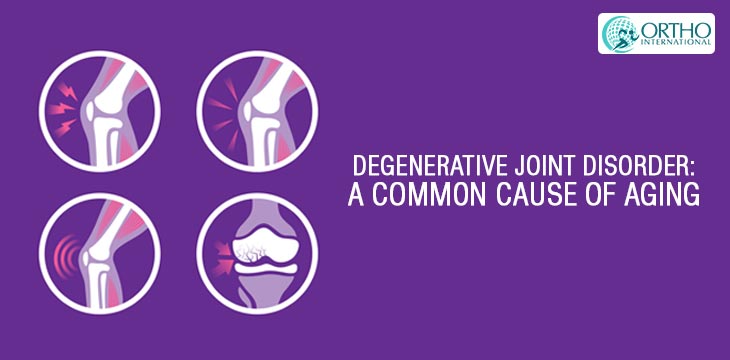Degenerative joint disorder is also attributed to osteoarthritis (OA) a common “wear and tear” disorder that happens when the cartilage that assists as a cushion in the joint degenerates. This disease can affect any joint but is most common in knees, hands, hips, and spine.
Aging is the principal risk factor for the development of osteoarthritis OA. Daily millions of people across the globe suffer from grinding bone-on-bone pain, permanent stiffness, cartilage damage and the nagging pain of degenerative joint disorder.
An aging World is kindling a push for more investigation into conditions that trouble older adults. By the end of 2020, the influence of an aging and overweight population is assumed to double the number of people with Osteoarthritis, one of the top reasons for feebleness in older adults.
Some Common Symptoms Of Degenerative Joint Disorder
Patients may have discomfort, stiffness, restricted scope of motion, loss of elasticity, inflammation, delicate deformed joints, and spoiled cartilage. As the disease advances, joint pain and pain that could be alleviated with rest heighten persistently and can limit motion and reduce the nature of life.
How Does Aging And/Or Injury Lead To Degenerative Joint Disorder?
Prior to birth, a smooth layer of cartilage forms to cushion the ends of ossein and help them slide effortlessly inside the joints. Since cartilage needs the potential to reform, aging promotes destructive cellular modifications that can lead to lasting joint deterioration.
Osteoarthritis can also occur in response to traumatic injury to bones, tissues, and ligaments the links that join the bones securely to one another. But usually, the value of the injury doesn’t display up continuously much later. Studies have revealed that in young adults particularly, arthritic modifications often only show up on X-rays within a decade after a destabilizing knee injury.
Can We Reverse The Clock On Aging?
Scientists are scrambling to investigate the biology and genetics of aging in an attempt to turn back the clock on maturing joints. We are especially excited about whether cartilage exhibits numbers of cellular deterioration when cells convert dysfunctional in answer to chronic anxiety and it can generate fragments that drive age-related disorders.
In younger people, biological aging is a built-in safeguard against cancer. As cell ages, it picks up more and more destruction. Gradual aging stops cells from endlessly distributing, which is an endless thing, but the downside is that it can be accountable for age-related disorders. So far, it has been exciting to identify the underlying biological mechanisms that cause joints to fail with age and even more troublesome to improve treatments to halt or reverse age-related variations.
As cells become weaker or start aging, they emit inflammatory factors that negotiate cells and tissues nearby them. Since cartilage can’t regrow, attacking the deteriorating cells might allow the surrounding cells to thrive.
Diagnosis And The Novel Approach Of Treating Arthritis
One approach to obtaining a cure for arthritis might include selectively inducing the death of the biological aging cells and it is none other than cartilage that is particularly prone to biological aging. A biomarker denominated p16 is among various genetic tools now used to see whether eliminating biological aging cells could lead to an effective treatment for osteoarthritis. Cells that are aging usually have exceptionally high levels of p16. Then it’s necessary to recognize molecules that kill aging cells and leave normal cells alone.
However, the general diagnostic procedure involves X-rays, MRI, CT, or bone scans which are procedures used to diagnose OA. Fluids extracted from the afflicted joints may be investigated, and arthroscopy, which comprises the insertion of a small scope into the joint, can be employed to view the destruction.
Reference
If your ability to walk is impacted due to joint pain or problem or you are having the aging joint problem, try consulting Dr. Abhishek Mishra, the best orthopedic surgeon in Delhi.
